Extreme weather: Fires and floods left this Greek village with no hope
Residents face a bleak future after 70% of Sesklo was wiped out by fires and floods, writes Louisa Gouliamaki
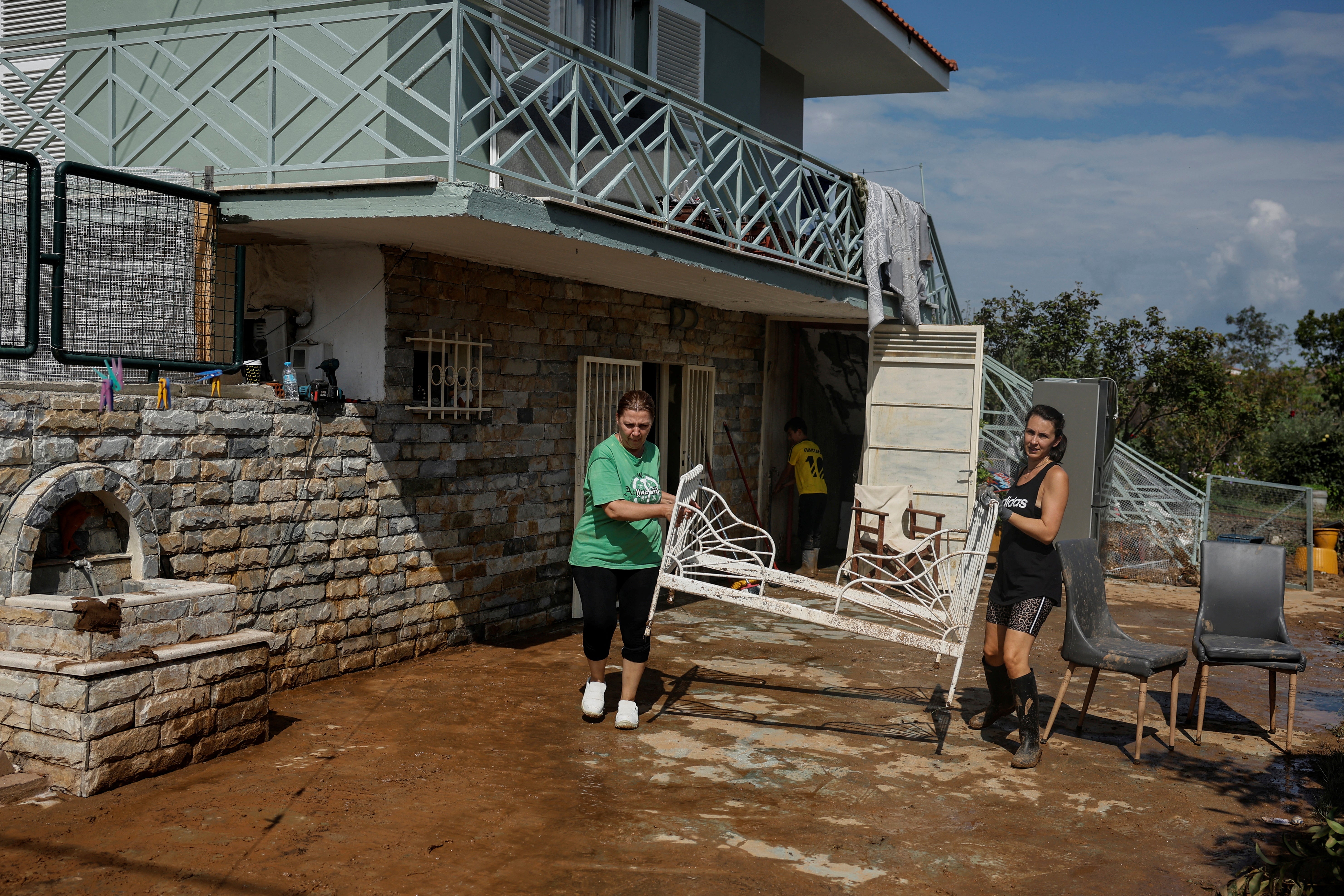
Your support helps us to tell the story
From reproductive rights to climate change to Big Tech, The Independent is on the ground when the story is developing. Whether it's investigating the financials of Elon Musk's pro-Trump PAC or producing our latest documentary, 'The A Word', which shines a light on the American women fighting for reproductive rights, we know how important it is to parse out the facts from the messaging.
At such a critical moment in US history, we need reporters on the ground. Your donation allows us to keep sending journalists to speak to both sides of the story.
The Independent is trusted by Americans across the entire political spectrum. And unlike many other quality news outlets, we choose not to lock Americans out of our reporting and analysis with paywalls. We believe quality journalism should be available to everyone, paid for by those who can afford it.
Your support makes all the difference.The fires came first. Then the floods. In the small village of Sesklo in central Greece, 46-year-old Vasilis Tsiamitas has felt the extremes of both freak weather phenomena this summer, turning Greece into a climate change hotspot.
Storm Elias flooded his house, damaged his beach bar and swept away his car in September, finishing off what was left weeks earlier by Storm Daniel, Greece’s most intense on record, and a July wildfire that scorched his family’s almond grove.
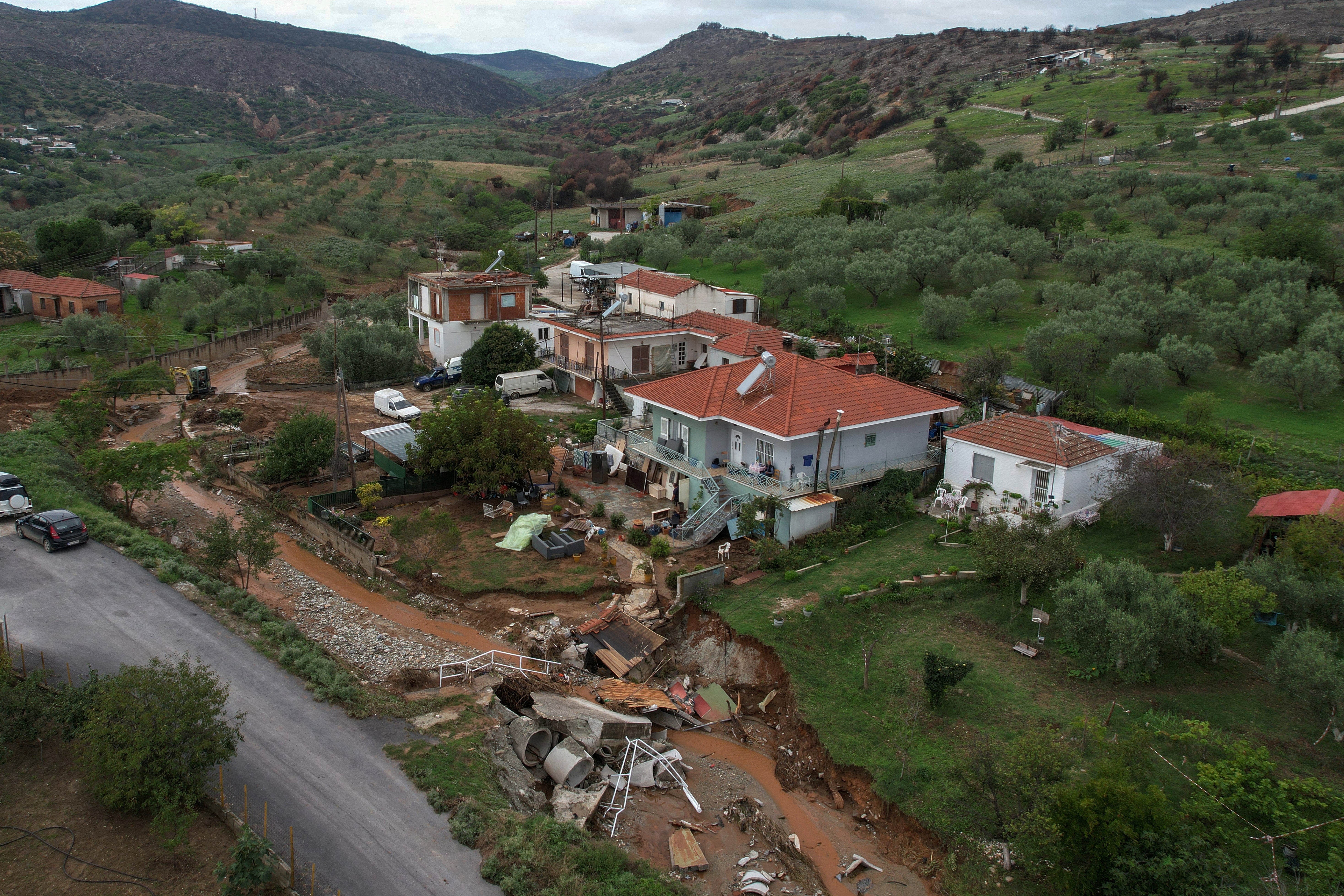
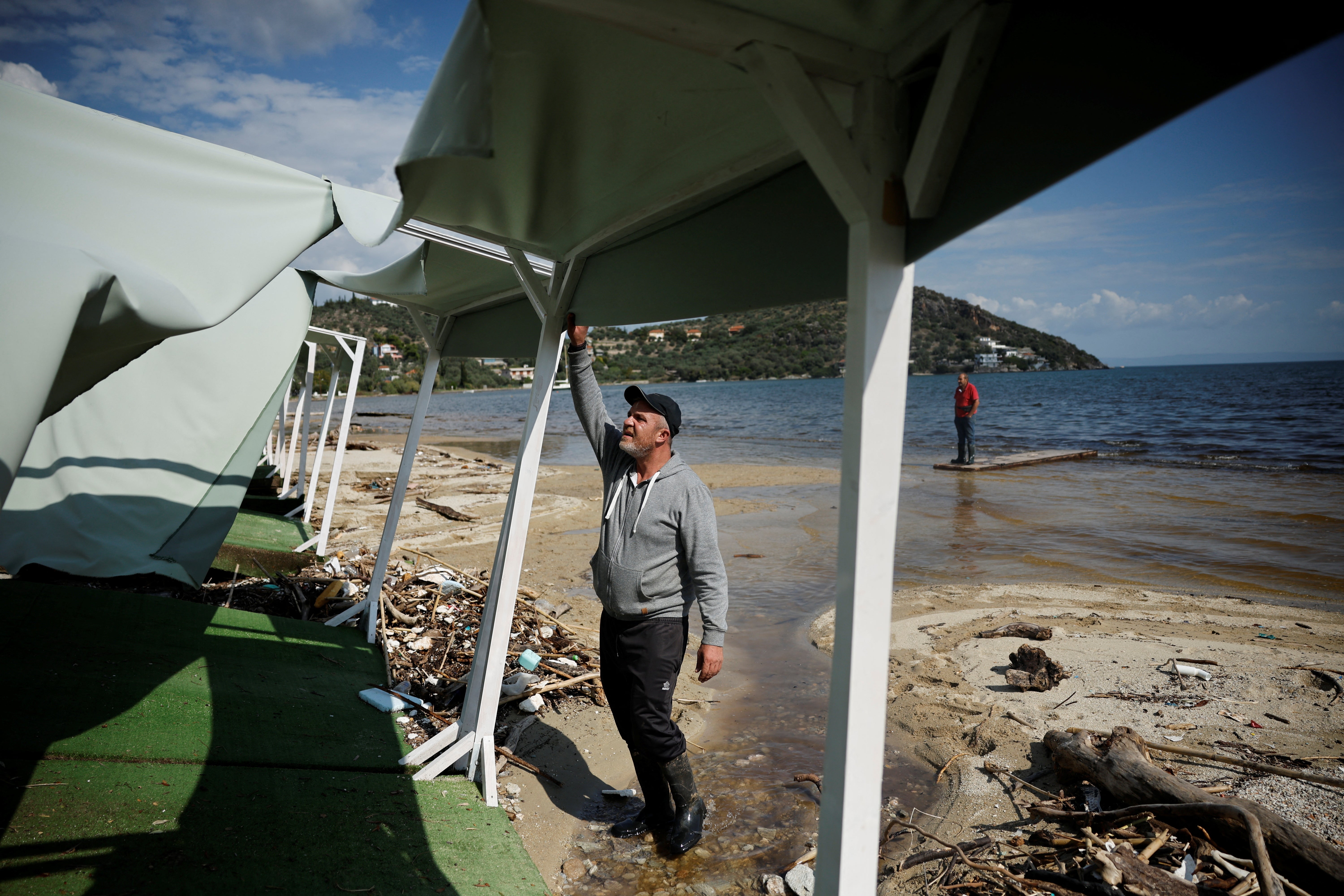
“God only knows how I will get past this,” says Tsiamitas, standing outside his two-storey house. The front door is off its hinges, propped up against a wall next to wooden boards soaked by floodwater.
Sesklo, a village of about 800 residents near the port city of Volos and home to one of Europe’s oldest prehistoric settlements, has survived natural disasters through the centuries. But its eldest residents, Tsiamitas says, have never experienced anything like this year’s devastation.
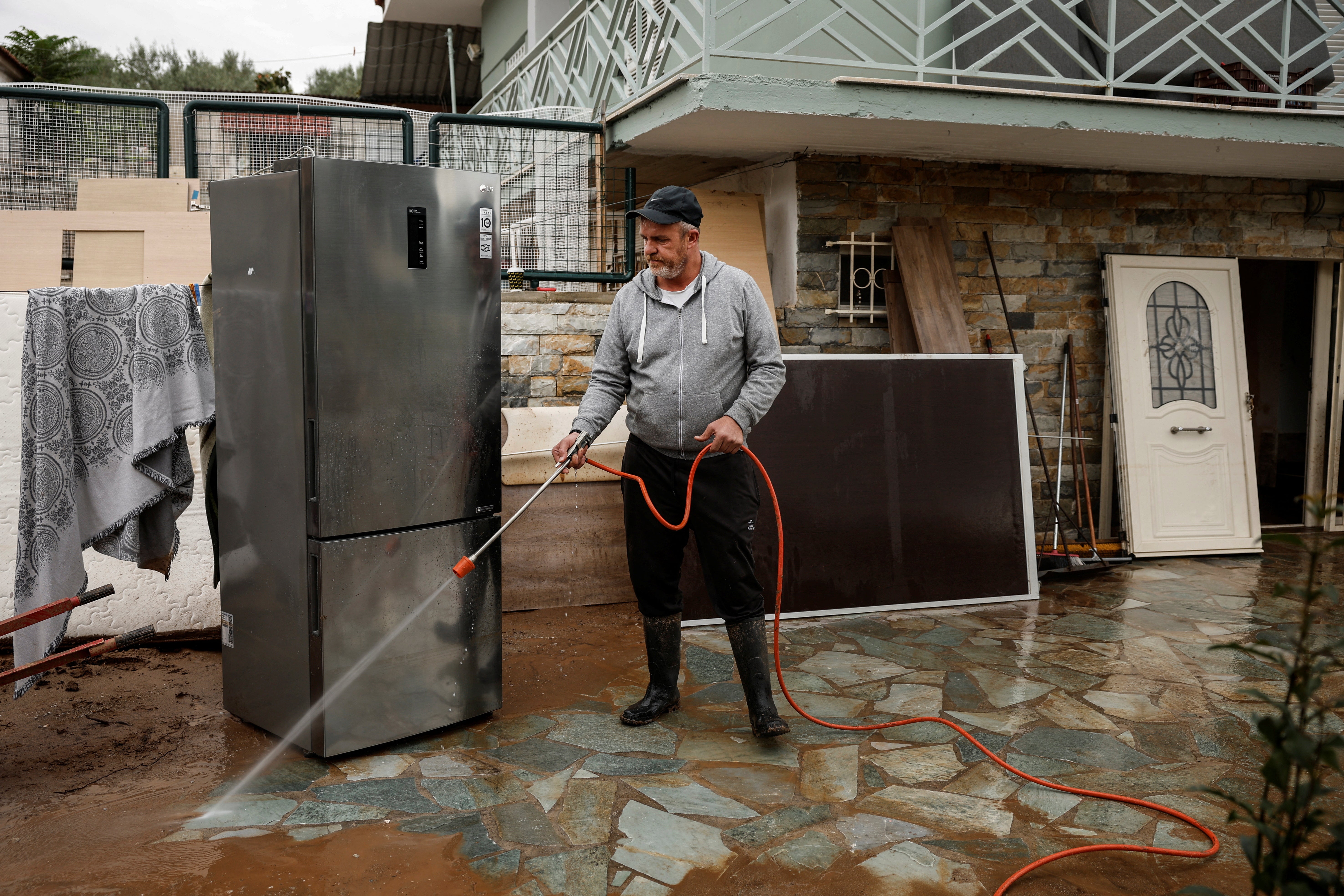
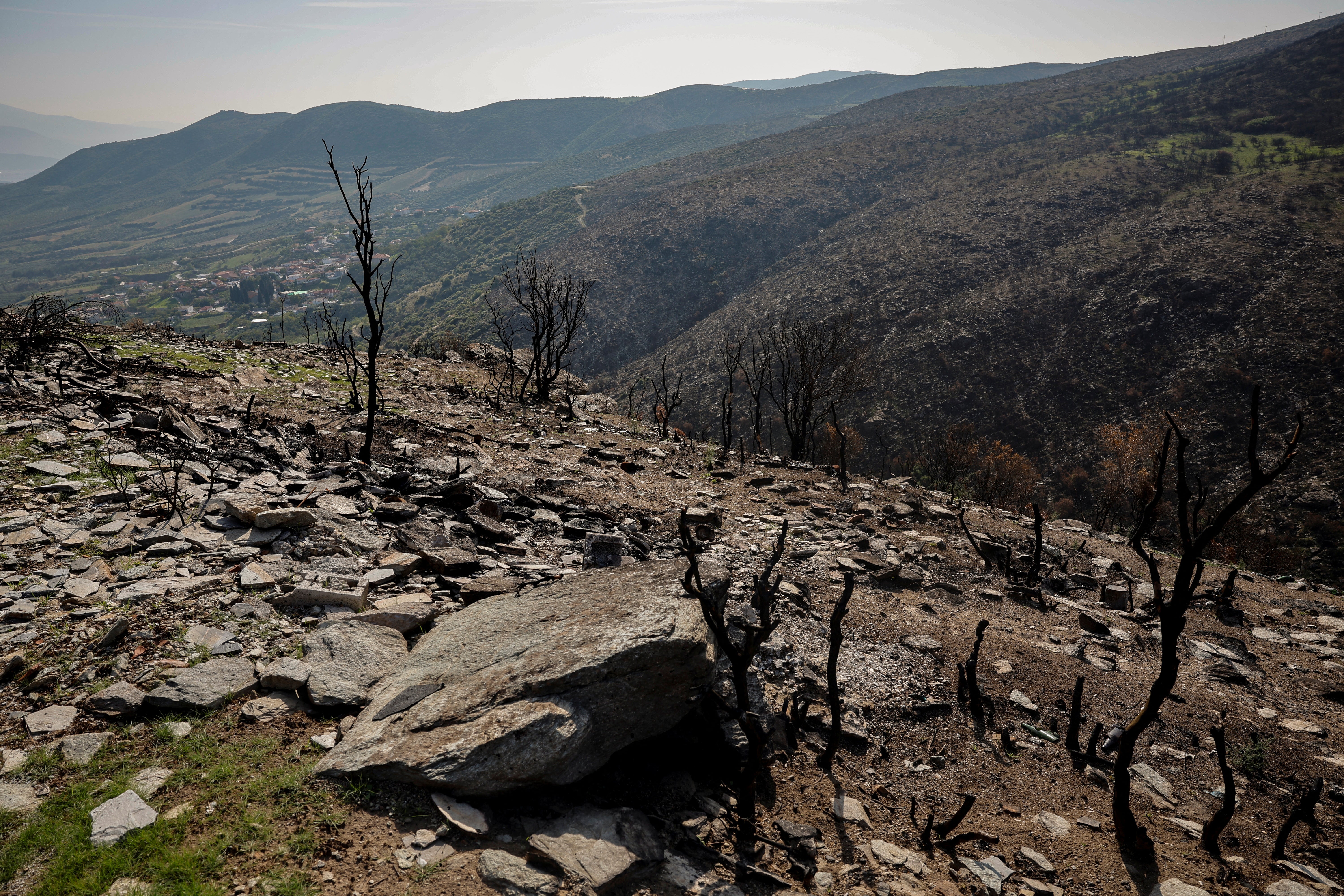
The wildfire that broke out in July was burning uncontrolled for at least two days. Sesklo residents were evacuated in time but the flames, fanned by strong winds, burnt through farmland and groves, destroying approximately 70 per cent of the village’s almond and olive oil production, says Tsiamitas.
In early September, Storm Daniel hit Thessaly after Greece’s longest heatwave in more than 30 years. It killed 16 people and turned the area into an inland sea, destroying homes and farms and wiping out swathes of crops.
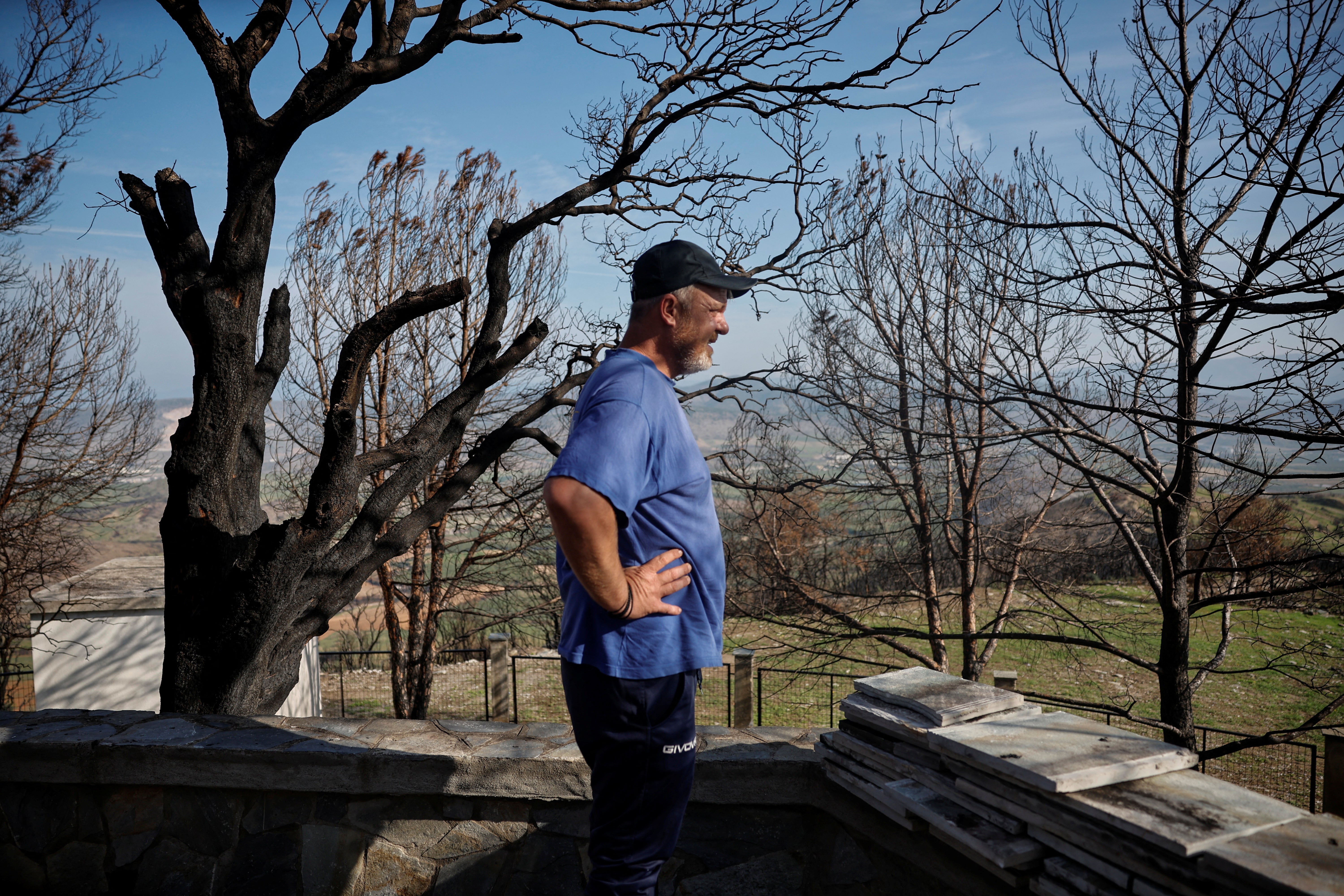
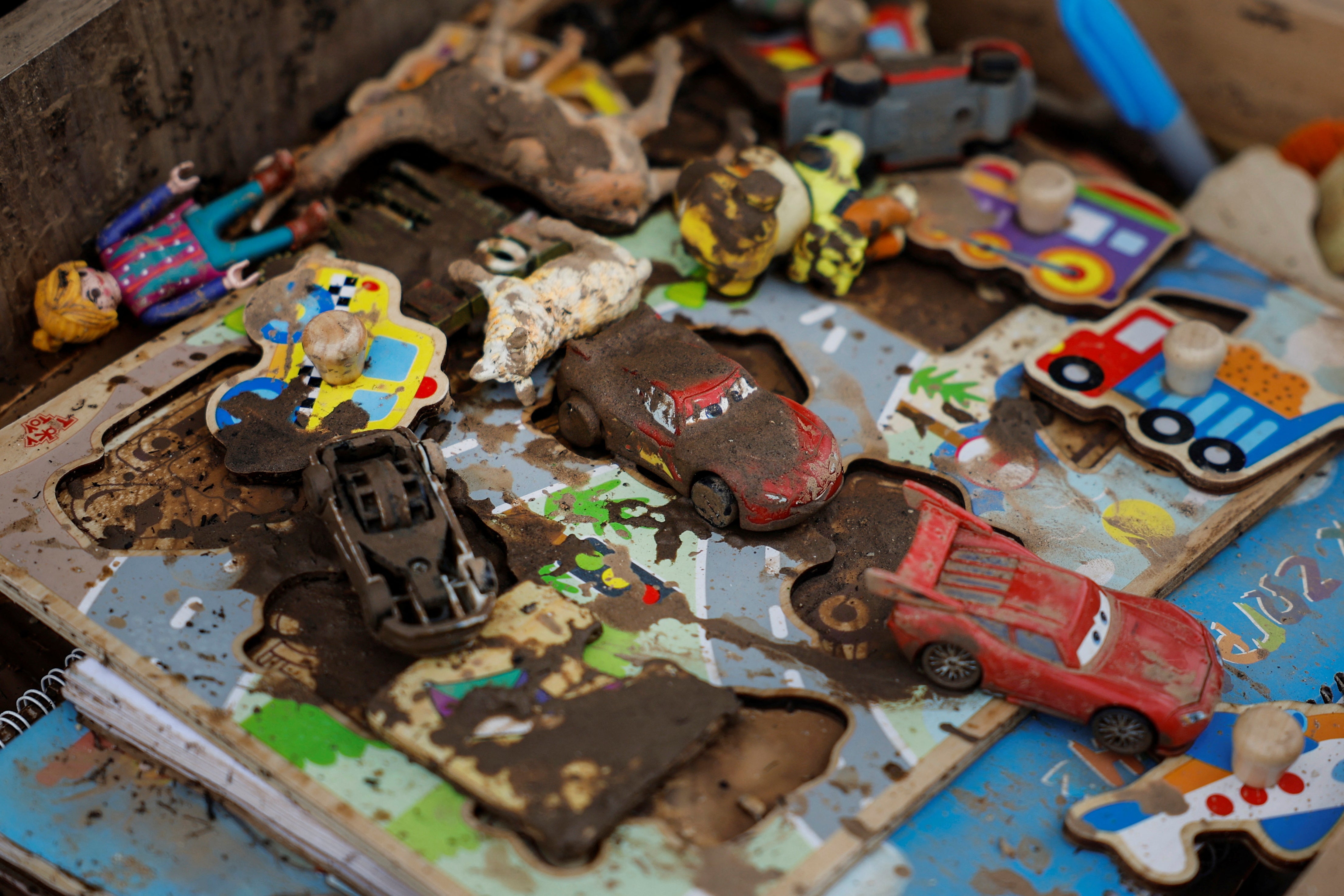
Weeks later, Elias, a less intense but unexpected storm, was the final straw.
“We should learn our lesson,” Tsiamitas says, looking at stumps of burnt almond trees. “We need to uproot them ... we need to plant them again. Again and again, we need to start everything from scratch.”
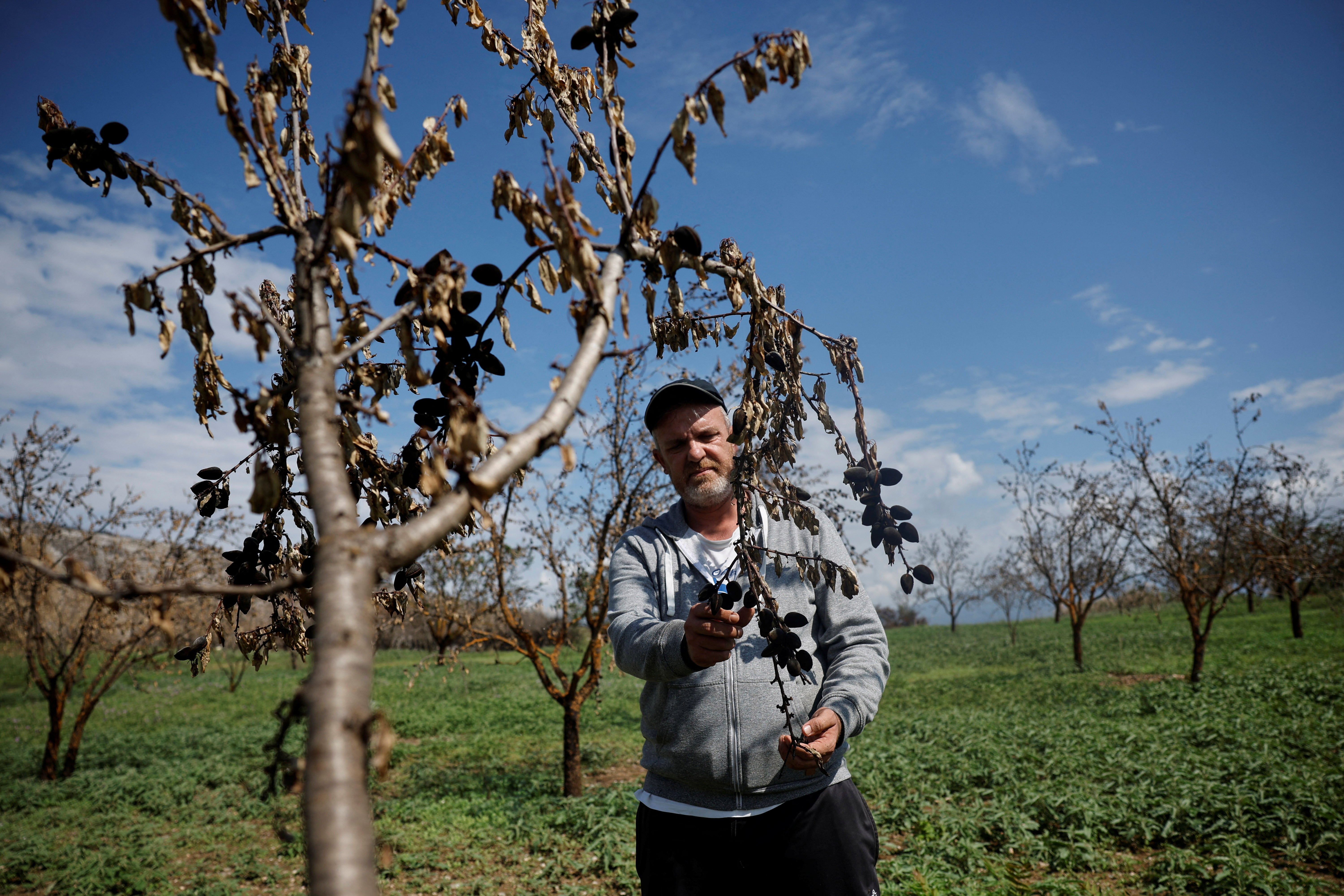
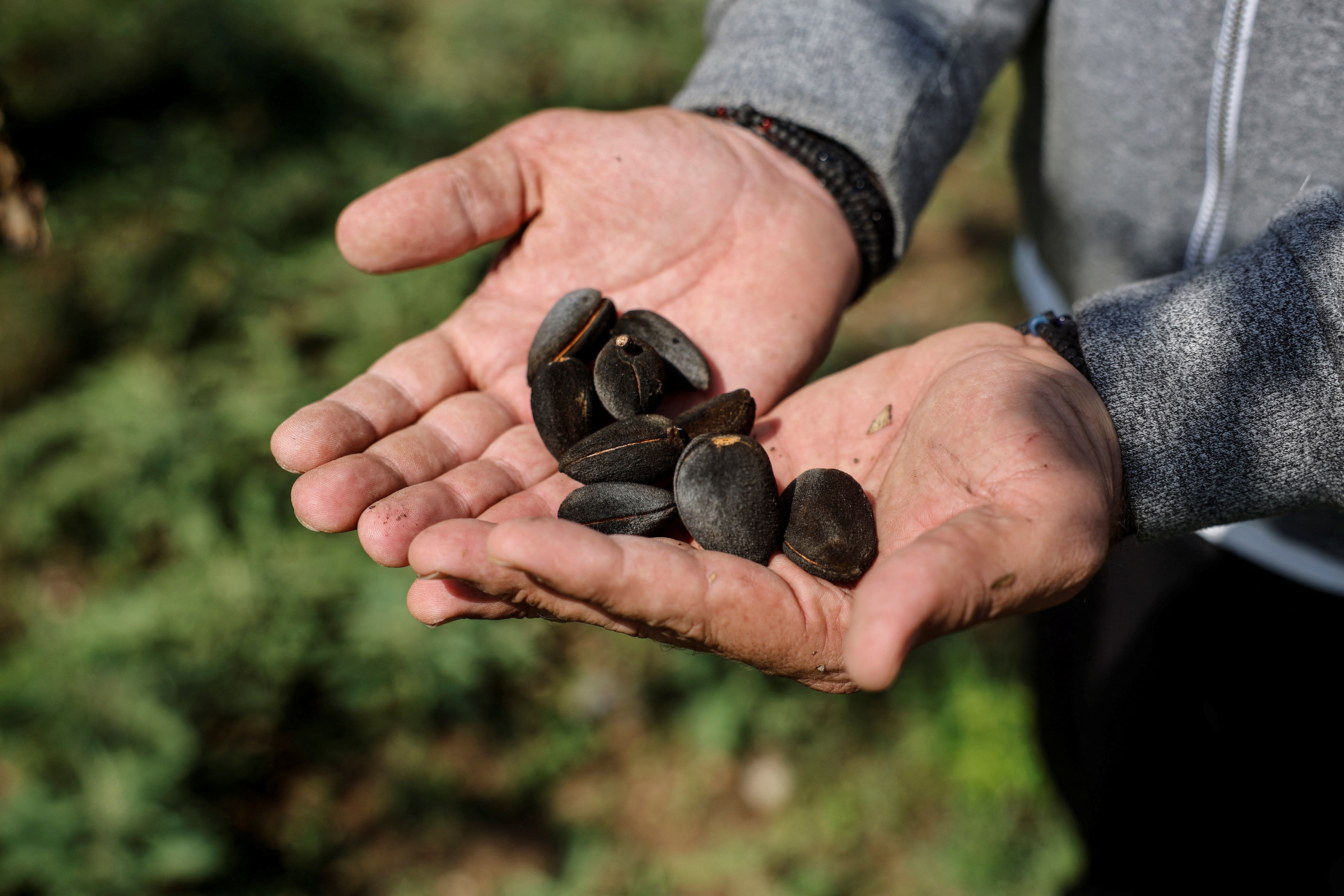
Reuters
Join our commenting forum
Join thought-provoking conversations, follow other Independent readers and see their replies
Comments